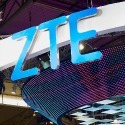ZTE Fined Another $1B in Rescue Deal With US
Chinese vendor forced to overhaul its management and put on ten-year probation by US authorities.

ZTE will pay a $1 billion fine and install a "compliance" team chosen by US authorities to end a purchasing ban and allow it to resume commercial operations.
Banned from acquiring US components after violating sanctions against Iran and North Korea, the Chinese vendor, which had been on the brink of collapse, has just reached an agreement with the US Commerce Department that will be welcomed by China's government, US components suppliers and the telecom operators that use ZTE's products. (See ZTE Ceases Business Operations After US Ban.)
Besides paying a fine of $1 billion, ZTE Corp. (Shenzhen: 000063; Hong Kong: 0763) has agreed to replace its entire board of directors and leadership team. It is also placing $400 million in escrow as "suspended penalty money," according to a statement from the US commerce department.
The deal follows intervention by US President Donald Trump, who had famously tweeted that he was working with China's government on a rescue package for ZTE to prevent it from going out of business. (See Trump Says ZTE Can Re-Open... With Conditions.)
Although his remarks came in for criticism from other US authorities, today's announcement seems broadly to reflect the measures Trump had proposed last month, including a management overhaul at ZTE.
The company will be under close US supervision henceforth, it appears. For the next decade, it will have to retain a team of compliance coordinators chosen by and answerable to commerce department officials.
With that comes the threat of additional sanctions if ZTE is found wanting. Any violations during the ten-year probationary period will result in a swift re-imposition of the purchasing ban, said the commerce department.
"Today, BIS [the commerce department's bureau of industry and security] is imposing the largest penalty it has ever levied and requiring that ZTE adopt unprecedented compliance measures," said Secretary of Commerce Wilbur Ross in a statement. "We will closely monitor ZTE's behavior. If they commit any further violations, we would again be able to deny them access to US technology as well as collect the additional $400 million in escrow."
The fine comes on top of a $900 million penalty that ZTE paid last year when first charged with violating sanctions. That payment blew a gaping hole in ZTE's profits for 2017, but the company had quickly bounced back in 2018, reporting growth in sales and earnings in the first quarter.
Then came news of fresh measures against the company after US authorities complained it had failed to address problems and issued misleading statements about its activities.
The components ban was a dramatic step because most of ZTE's products rely to varying degrees on US equipment. Suppliers such as Acacia, which sells optical equipment and counts ZTE as one of its biggest customers, watched their share prices tumble as investors panicked about the implications of a ban on sales to ZTE.
Both ZTE and domestic rival Huawei Technologies Co. Ltd. have been unable to sell equipment to large US operators since 2012, when a US government report described both companies as a security risk, citing close links to the Chinese government.
Outside the US, however, ZTE competes against network equipment vendors such as Ericsson AB (Nasdaq: ERIC) and Nokia Corp. (NYSE: NOK), as well as in mobile device markets. For operators that rely heavily on ZTE equipment, such as Norway's Telenor Group (Nasdaq: TELN) and Amsterdam-headquartered Veon, the US components ban was a troubling development.
Unable to buy US equipment, and with some customers reviewing their options, ZTE was forced to cease business operations in May. It has reportedly racked up losses of $3 billion as it continues to pay staff while the sales engine runs dry. (See ZTE Racks Up Losses of $3B After US Ban – Report.)
For all the latest news from the wireless networking and services sector, check out our dedicated mobile content channel here on Light Reading.
Hoping to fend off criticism that authorities have now gone soft on ZTE, Ross described the latest measures in the kind of chest-thumping rhetoric usually reserved for achievements in the sports arena. "This new settlement agreement sets another record, and brings the total penalties on ZTE to $2.29 billion," he crowed in his statement.
That did not mollify critics, however. Senate Minority Leader Chuck Schumer lashed out on Twitter following news of the deal. "Donald Trump should be aiming his trade fire at China, but instead he inexplicably aims it at allies like Canada, Mexico and Europe," he wrote. "When it comes to China, despite his tough talk, this deal with ZTE proves the president just shoots blanks."
For ZTE and its supporters, today's deal represents a lifeline, no matter how draconian the latest US measures. It will allow the vendor to resume operations and prevent job losses in both China and the US, where ZTE's suppliers will breathe a sigh of relief. ZTE's customers will also be happy, although some will be keen to pull back from the single-vendor arrangements they have, in case the same thing happens again.
Both ZTE and Huawei, which is reportedly under investigation for sanctions violations, have clearly been victims of the ongoing trade dispute between the US and China.
Some US officials remain angered by what they see as unfair tactics and intellectual property infringements in China. A related concern is that China could take the lead when it comes to the development of new technologies, such as artificial intelligence and 5G.
If those technologies turn out to be as economically important as their proponents say, that technological lead could translate into a huge advantage.
— Iain Morris, International Editor, Light Reading
Read more about:
AsiaAbout the Author(s)
You May Also Like




_International_Software_Products.jpeg?width=300&auto=webp&quality=80&disable=upscale)







